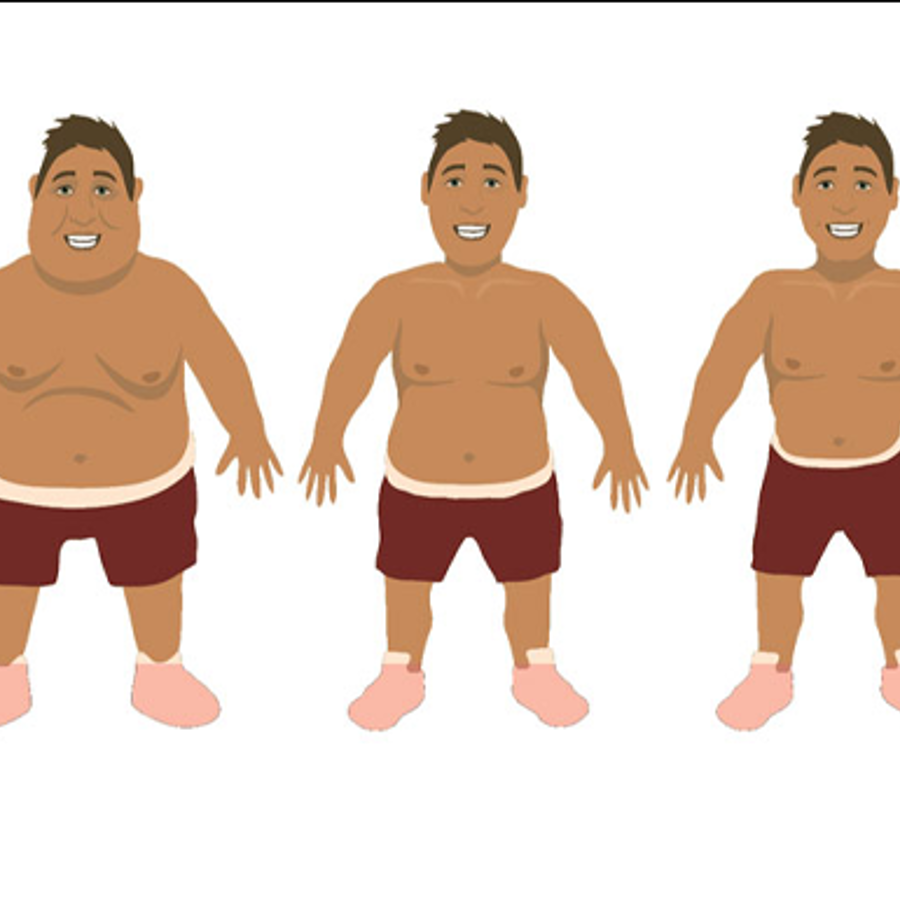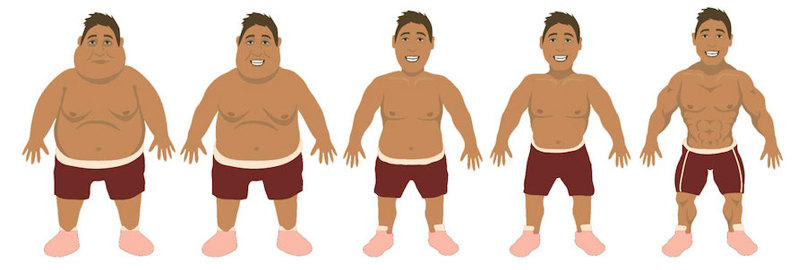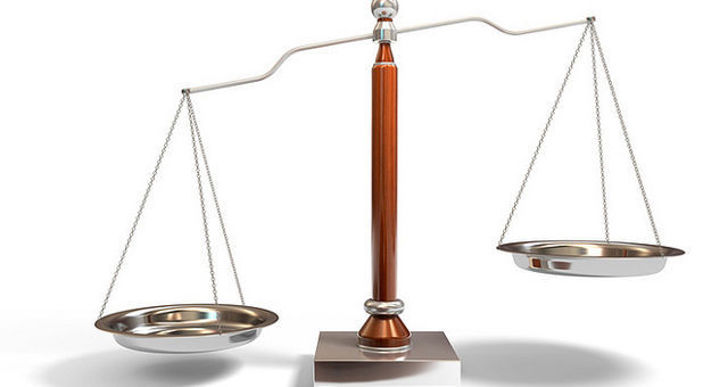
How much do genes influence weight?
May 22, 2018

- Related Topics:
- Weight,
- Complex traits,
- Environmental influence
An undergraduate student from Denmark asks:
"I have been naturally skinny through all my life despite diet. My mom has been overweight for all her adult life despite being physically active and eating healthy. I know weight isn’t all genetics, but how much do genes influence weight?"
Everyone knows that person who can eat whatever they want, whenever they want, without gaining an ounce. Maybe you are that (lucky) person. Or, perhaps, you are the type of person who counts every calorie, exercises, and still has trouble buttoning their pants in the morning.
This leads us to a very interesting, and complicated, question – what factors control our weight? We all know diet and exercise are important. But what about the things we can’t control, like our DNA? How much do our genes matter?
It turns out DNA can matter a lot! Depending on the person, their DNA may control 25-70% of their body weight equation.

Calories in, calories out? It’s not that simple
The age-old equation for body weight has three parts:
- How many calories (energy) you consume in a day
- How many calories you burn through physical activity
- How many calories you have left over that need to be stored
This is a very hard balance. It might look something like this:

We can mostly control the number of calories we eat, and we can fit exercise into our schedules. But, what influences how many calories we burn during our workout, or how many calories we store as fat? It turns out that our genes have some say in this.
Close to 300 different genes have been linked to weight gain and obesity. Considering we all have about 20,000 total genes in our cells, that’s a lot of genes! And probably even more of your genes are associated with weight, which haven’t been identified yet.
These genes might affect how hungry we are, how quickly we feel full after a meal, what foods we crave, and how fat is stored in our bodies. Some of them might affect how we break down the food we eat into energy we can use, a process called metabolism. Different versions of these genes can change our body weight equation.
Hundreds of small changes can add up!
Figuring out which genes are the big players in body weight is a hard task. If we looked at 1 of these 300 genes, the impact of this 1 gene on weight would be very small.
By itself, a single gene change might increase a person’s body weight by only 0.1% compared to someone without this gene change. That’s almost nothing, right?
But, having changes in multiple genes can add up. Some people have very few of these weight-related gene changes, other people have a moderate amount, while others might have many.
Can you think of an example of when small changes added up to a lot? How about a change jar? You keep a jar out for all of your little change – pennies, nickels, dimes quarters and a few dollar bills. Each day you might add a few coins. After weeks and months, how much change could you have? Lots!
Try to think of all these 300 genes as small coins. By themselves, a single gene or a single coin doesn’t add to very much. But, when you add all these genes, or coins, together, it comes out to be a lot more!

The question of how much of a person’s weight is controlled by genes varies from person to person. Scientists estimate that for some people, 25% of their body weight equation is controlled by their genetics. For others who struggle with being overweight or obese, it may be as high as 70-80%.
If your weight was 80% controlled by your genetics, it would be a lot harder to lose weight, right? Imagine this — you are trying to swim across a river to the other side:
Let’s pretend that the direction the water is moving is like your genetics. If your genetics play a small role in your weight, controlling it will be easier. That’s just like if the water was pushing in the same direction as you were swimming.
But, what if your genetics plays a big role in your weight, such as 80%? That would make weight control much harder. That’s like swimming across the river with the water moving against you. Could you still make it across? Yes! But, you would have to put a lot more energy into swimming to get across.
The point here is that your genetics (just like the water in the river) can make it either easier or harder for you to control your weight.

Which genes are the biggest players?
Not all genes are made equal. Some genes play a bigger role in body weight than others. Here’s a table of some well-studied genes and what they do:
|
Genes |
What they do |
|
LEP, MC4R, POMC, HTR2C, CNR1 |
Feeling hungry |
|
PLIN1, FABP2, PPARG, APOA5, APOBR, APOA4, GIPR, INSIG2, IRS1, ADRB3 |
Storing body fat |
|
FTO, MC4R, TMEM18, PPARG, IL6, ADIPOQ, ADBR2, PPARGC1A, PPARD |
Obesity-related |
Scientists still don’t know all the details
While we know genetics influences a person's weight, scientists still don’t know exactly which genetic changes matter. Many of these studies have only been done once, or were done with only a handful of people, so scientists cannot be certain about the results. We can say that studies suggest that particular genetic changes influence a person’s body weight.
Even though, as of now, this research is not an exact science, some scientists believe that a person’s genetics should be considered when making a diet plan. There is a whole field dedicated to this school of thought, in fact — ‘nutrigenetics’.
So, after all that, what’s the big news? It turns out that we still can’t entirely blame our genetics for our weight struggles. Diet and exercise will always play an important role in weight management.
However, every day we are learning more about genes that influence the way we break down, or metabolize, our food. Depending on the person, genes may control 25-80% of their body weight equation.
As scientists discover more and more about weight-related genes, nutrigenetics will be ready to help people better understand their bodies and their metabolisms. The perfect diet plan may be on the horizon, custom-made for your own unique genetic make-up!

Author: Stephane Booke
When this answer was published in 2018, Stephane was a student in the Stanford MS Program in Human Genetics and Genetic Counseling. She wrote this answer while participating in the Stanford at The Tech program.
 Skip Navigation
Skip Navigation
